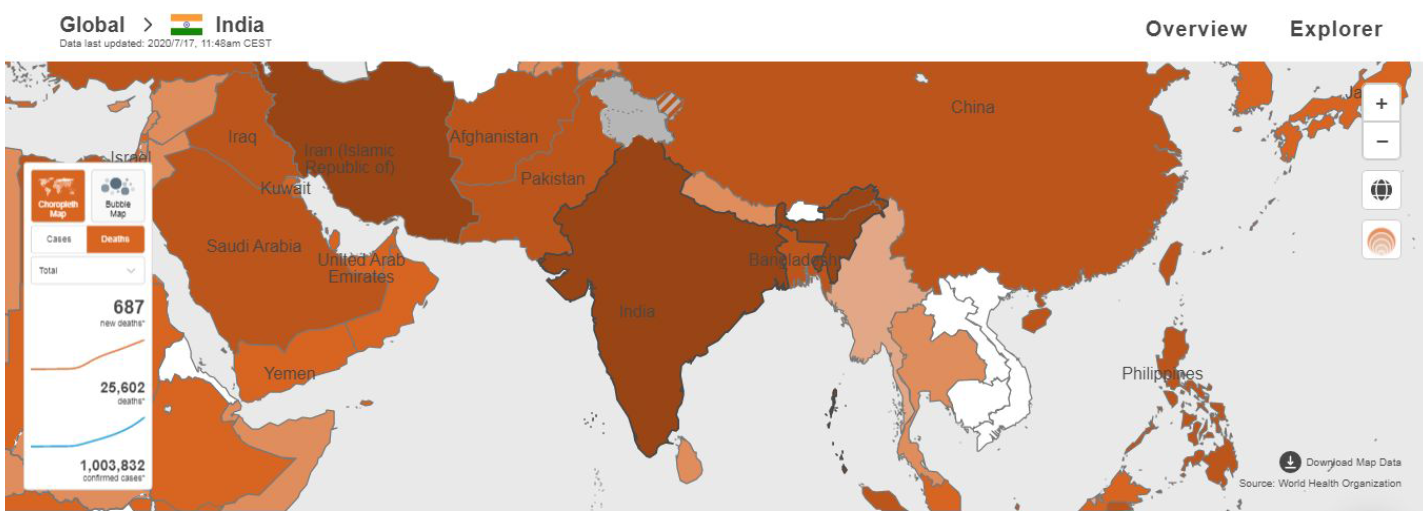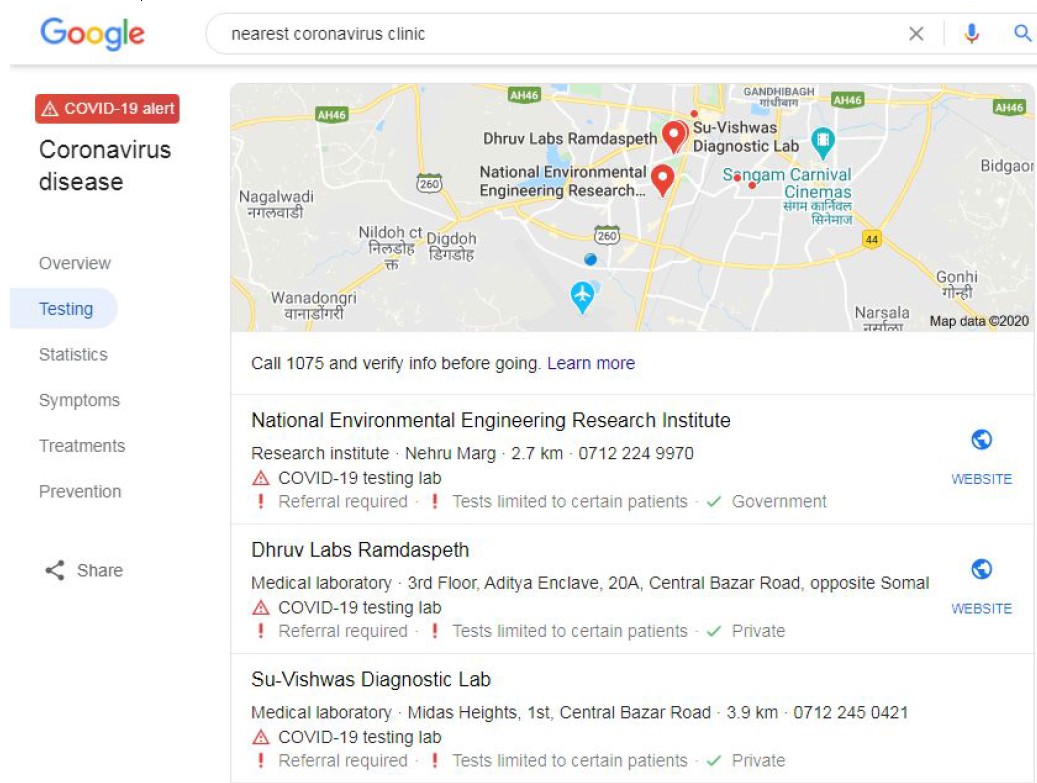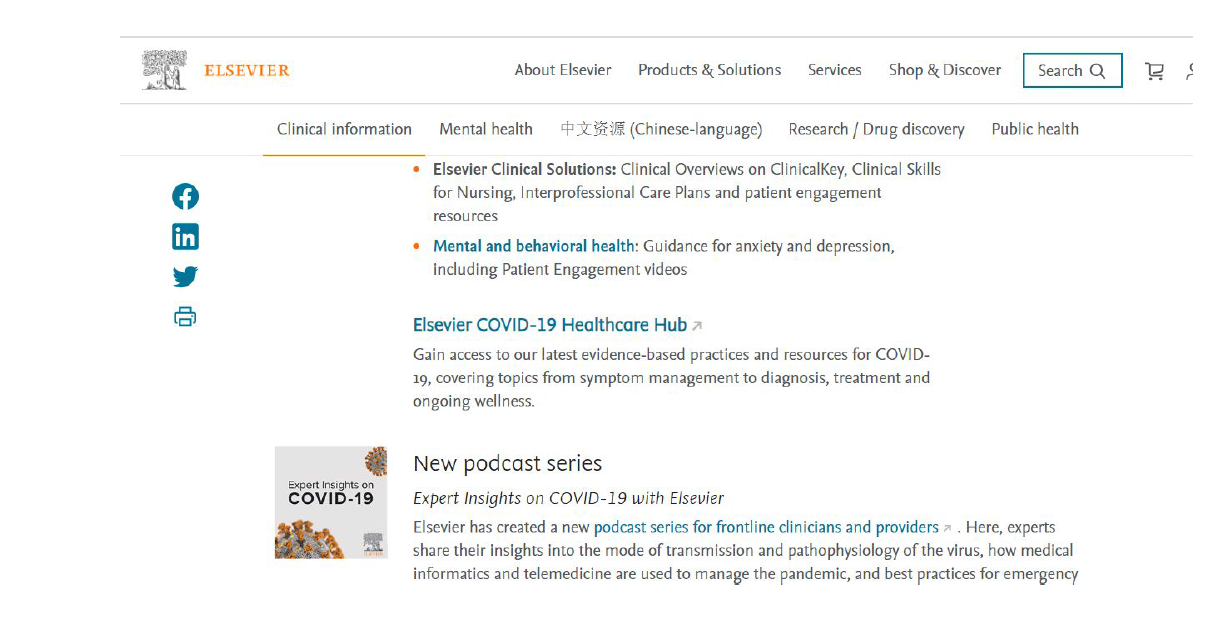The outbreak of possibly the deadliest virus in recent years has led to people all around the world being confined to their homes or in some cases wherever they were before a lockdown
was introduced. Due to this reduction in social contact, there has been a tremendous increase in the usage of social media, literary journals or blogs as media of expression and information.
In this paper, I would be focussing on the ways in which these literary mediums have influenced opinions and spread important information in these times of social distancing.
When the news of the outbreak of the virus was new, most of these mediums went haywire due to a large chunk of misinformation being spread via these platforms. However, with the passage of time, these platforms have turned out to be efficient ways of communication.
Representing data
One major aspect of the pandemic has been to convey accurate data about the number of active cases, nearby hospitals and other information that people should be aware of. Since each user will require local information along with the global data, various platforms have introduced innovative ideas to achieve the task at hand.
WHO
The World Health Organisation has introduced various measures to provide data to people around the world. Through the WHO Coronavirus Disease (COVID-19) Dashboard, the number of active cases and deaths are reported on a world map for the global data while each country or region can be explored separately. Although this data is localized only upto countries, it is a significant improvement in the use of new media and digital techniques of representing information.
Government of India
The Indian government with support from the National Informatics Centre(NIC) and Indian Council of Medical Research (ICMR) launched the Aarogya Setu application for keeping a track on active cases in various regions of India. This app has been used by over 10 crore Indians so far. It informs users about the updates regarding Covid-19 cases, self assessment techniques and most importantly alerts them about the nearby cases hence providing the essential localized information.
Medical Information
Along with the current cases, there is an urgent need to inform about the necessary precautions to be taken during the pandemic.
Google has introduced a feature that alerts users regarding the precautions to be taken especially while travelling or going out of their homes. Their design uses digital technology to its fullest by employing social bots to answer questions in multiple languages and also creating FAQs which have been answered by medical professionals.
It also provides details about the nearest coronavirus testing facilities along with the safest route to get there.
Collaborating with various government websites and other official sources, Google has become a significant source of accurate information.
I have a personal anecdote to share that highlights the help provided by such digital platforms.
When my grandfather had to be hospitalized a few months back due to health complications, the doctors also decided to perform a Covid-19 test as a precautionary measure. Once the throat swab was taken, the official website contacted us via mail and provided all the literature necessary to take proper precautions before the result of the test was completed. After the test results were declared negative, there was another set of guidelines provided for further measures and contacts in case of future health issues. On further enquiry with the local municipal corporation, they informed us that this service was made possible due to the Government of India web platforms along with Google.
I feel this incident perfectly highlights the proper usage of digital platforms to have a positive impact in an otherwise chaotic situation.
Support groups
Social media has been abuzz with posts from support groups requesting monetary donations or other forms of help to various people in need. These include but are not restricted to donations
for the battle against Covid-19 itself.
There have been various nonprofit organizations working towards providing
- Food to the poor and those stuck in remote areas
- Blood donation camps for plasma cells recovery
- Providing monetary help for people out of jobs and many more
These support groups have been campaigning on platforms such as Instagram, Twitter and Facebook. They have also used blogs as an effective method to invite many donations worldwide.
Akshay Patra Foundation
The Akshay Patra Foundation has served over 5 crore meals and distributed over 7 lakh grocery kits in India.
They have used their website and other platforms such as Facebook to inform people about their activities and collect donations
Research activities
In times of trouble, research and innovation can be extremely helpful to tackle the trouble as well as to maintain sanity in the society.
Various platforms have been instrumental in providing literature and resources for effective research.
Novel Coronavirus Information Center, Elsevier
This is one of the most informative and innovative platforms for updates regarding current research, database repositories. The platform could be divided into data for clinical research, research articles, write-ups to support in maintaining mental health, podcasts to provide essential information and entertainment
Such platforms will be instrumental in maintaining a high quality of research and literature in the digital age. It is also working to counter the various modes of spreading misinformation by
actively providing accurate resources from people who have proper knowledge about any particular subject.
References
Novel Coronavirus Information Center, Elsevier
- https://covid19.who.int/
- https://www.mygov.in/covid-19
- https://www.health.govt.nz/
- https://www.akshayapatra.org/covid-relief-services
- https://www.elsevier.com/connect/coronavirus-information-center
- https://kopywritingkourse.com/guides/write-reflection-paper/







Recent Comments